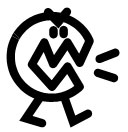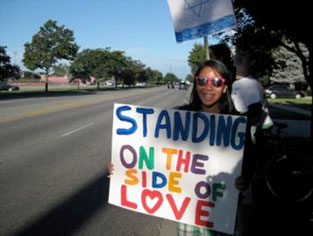

Have you ever heard someone say something truly awful? Maybe he or she said something insulting or simply aimed at hurting someone's feelings. If it happened on the school playground, perhaps your teacher heard it and disciplined the student. Better still, perhaps other students (you?) stepped in and said that such insults are wrong.
Students and teachers may intervene in such a situation, but unless there are other circumstances, do you know who won't get involved? The police won't get involved.
→ Reflection: Think of a time when you heard someone say something awful to another person. What was said and what were the consequences of it?
In the United States, citizens have the right to free speech, and that right is very extensive. For example, the Supreme Court famously ruled that a group of neo-Nazis could stage a major anti-minority, anti-Jewish rally right in the middle of an Illinois neighborhood with many Holocaust survivors.

As long as a person's words cannot be reasonably expected to lead to an immediate, lawless action, the Constitution permits it. This is not true in other countries. Germany, a vibrant democracy, would have arrested the neo-Nazis; it is illegal there to express any view sympathetic to that shameful period from its past.
As long as people are peaceful, they can express themselves. Here are a group of people for and against the Iraq War demonstrating on two sides of the same lot.
Having the right to do something does not mean that you should. Rights come with responsibilities; words hurt. Think back to the possible incident on the school playground. Although it was not illegal, hurling insults at someone just to hurt his or her feelings is not a responsible thing to do. Consider the neo-Nazi protest in Illinois: it may not have been very responsible of them to protest in a neighborhood of residents who may have found the protest offensive.
Someone should defend the playground victim or alert an authority figure. Many people did respond to the neo-Nazi protest by staging a counter-march. In this lesson, you will learn about the rights you have under the Bill of Rights and also explore their responsible use.

You cannot ban hate speech. However, you can counter-protest.
Sources of images used for this section as they appear, top to bottom: